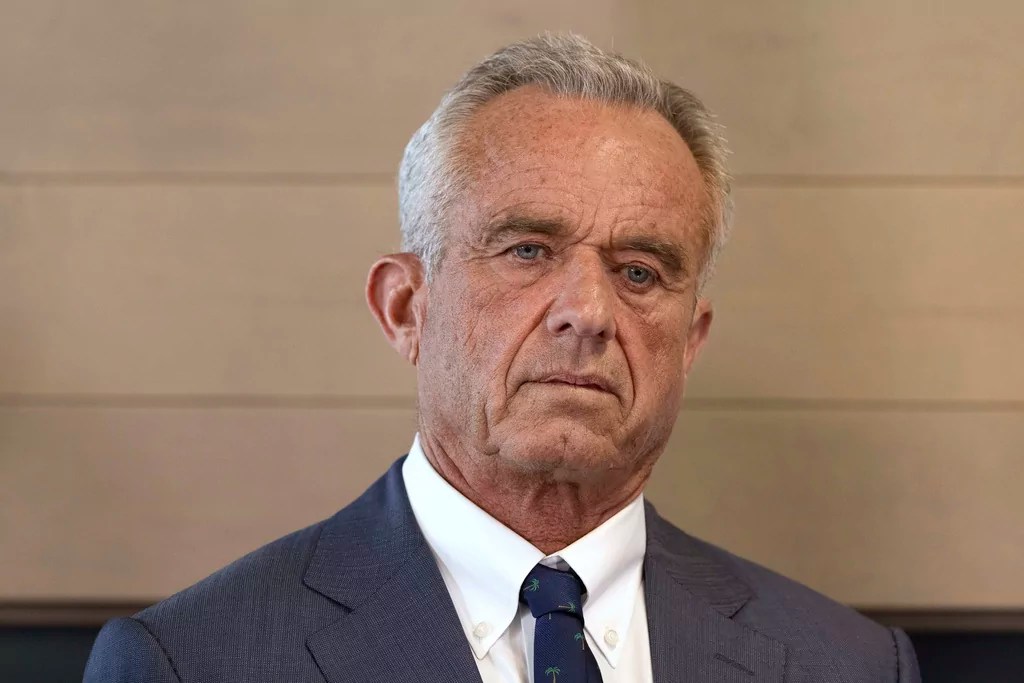


Health and Human Services Secretary Robert F. Kennedy Jr. received strong pushback from his anti-vaccine base after he endorsed the measles, mumps, and rubella vaccine after a second child in Texas died from a measles infection.
Kennedy, who has built his “Make America Healthy Again” movement partly on derision of the MMR vaccine, buried an endorsement of the vaccine in a lengthy social media post on Sunday afternoon, calling it the “most effective way to prevent the spread of measles.”
Recommended Stories
- RFK Jr. directs CDC not to recommend fluoride in water systems
- Life expectancy increased in 2022 but not enough to make up for pandemic loss
- Hantavirus: What to know about rare disease from mice
Although Kennedy received cautious praise for the vaccine endorsement from pediatricians in Texas, vaccine skeptics of the MAHA movement took umbrage with the secretary’s message.
Del Bigtree, an anti-vaccine activist who was the communications director for Kennedy’s presidential campaign, responded on X, saying Kennedy’s post must have “got cut off” before he added that the MMR vaccine is “one of the most effective ways to cause autism.”
Bigtree attempted to reassure other MAHA supporters by saying Kennedy “is at a poker table with the stylist serpents in the world,” which might explain the secretary’s public endorsement of the MMR vaccine. Still, Bigtree expressed his frustration with Kennedy.
“We should not ask him to show his cards for our sake, but we can demand that he takes a little more time to write a better f’n post than this one,” Bigtree said.
Bigtree currently runs the nonprofit advocacy group MAHA Action, which is not affiliated with the administration but works to advance various goals espoused by Kennedy and others, ranging from vaccine skepticism to food safety concerns.
Sherri Tenpenny, another prominent anti-vaccine activist who popularized the idea that COVID-19 vaccines gave people magnetic properties, said there is “no defense for this poorly worded statement.”
Several hours after his initial comment on Sunday, Kennedy made an additional post about his trip to Texas, praising the work of Richard Edwards and Richard Bartlett, doctors who have used unorthodox methods to treat Mennonite children infected with measles during the outbreak.
Both men have been linked to controversial positions, including prescribing patients vitamin C and cod liver oil and using steroids to treat infectious diseases.
Called before the Senate
Kennedy’s endorsement of the MMR vaccine followed an invitation to appear before the Senate Committee on Health, Education, Labor, and Pensions, chaired by Sen. Bill Cassidy (R-LA).
Cassidy framed the hearing invitation for Kennedy as an opportunity to reassure the public about sweeping changes that were already made at HHS, including the blanket termination of 10,000 employees and the consolidation of multiple public health agencies.
However, Kennedy’s handling of the measles outbreak will likely play a role during the hearing, as it did during his confirmation process.
Of Republicans, Cassidy was one of the most vocal critics of Kennedy before his confirmation, partly because Kennedy has suggested there are connections between the MMR vaccine and autism.
Cassidy said on the Senate floor that Kennedy’s promise that the pair would have an “unprecedentedly close collaborative working relationship” and would speak regularly assuaged his concerns. The senator also said Kennedy agreed to come before the committee quarterly, regardless of who was chairing it. Both of these promises led Cassidy to vote for Kennedy’s confirmation.
Kennedy’s hearing date and time have yet to be announced. According to committee rules, a hearing must be announced seven days before the event.
Measles support from CDC
Despite mixed messages from Kennedy regarding his personal position on the measles vaccine, he has used the Centers for Disease Control and Prevention’s resources to assist states with vaccination campaigns to curb the outbreak.
At the start of the Texas measles outbreak in early March, Kennedy deployed a CDC team to Texas to improve the state’s capacity to handle the rapidly rising case count, a practice that fell squarely in line with HHS’s normal practices.
According to Kennedy, the CDC team’s services included supplying pharmacies and clinics with MMR vaccines, working with local institutions to support contact tracing, and conducting community outreach efforts, particularly to faith leaders.
After speaking with Gov. Gregg Abbott (R-TX), Kennedy said Sunday that he has redeployed CDC teams to West Texas.
In addition to supporting the affected families, Kennedy said he is “also here to support Texas health officials and to learn how our HHS agencies can better partner with them to control the measles outbreak.”
Neighboring states handling the measles outbreak have also expressed that the Kennedy administration has been helpful.
An Oklahoma State Department of Health official told the Washington Examiner that the state has been working closely with the CDC since the first probable case was identified in mid-March. However, the state has not requested on-the-ground assistance from the CDC.
RFK JR. BACKS MMR VACCINE AFTER SECOND MEASLES-RELATED DEATH IN TEXAS
A spokesperson for the New Mexico Health Department told the Washington Examiner that it also has not requested on-the-ground support from the CDC, “though we are aware we can reach out to that agency for help if need be.”
The outbreak in Texas, with over 500 cases as of Tuesday, is significantly larger than the more than 50 cases in New Mexico and 10 cases in Oklahoma.
